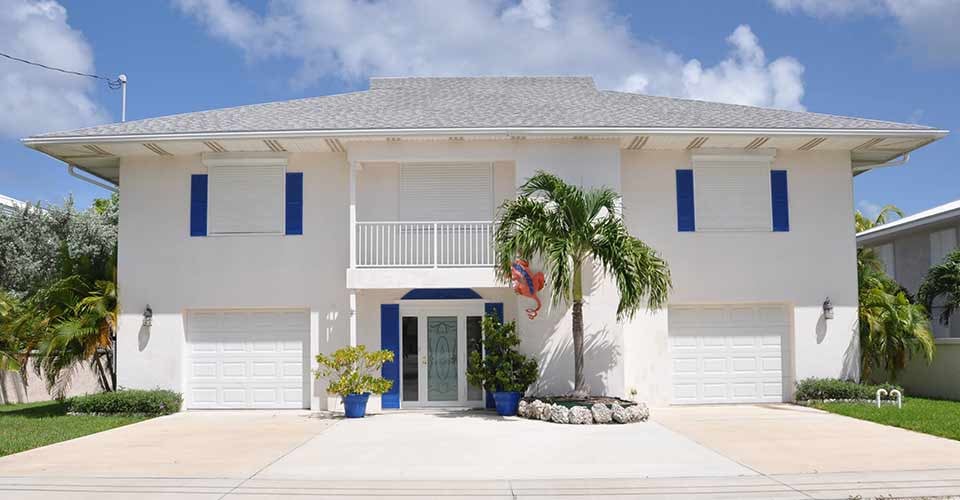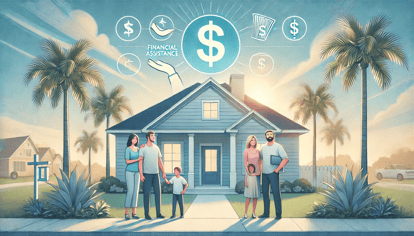What Goes into Closing Costs and Ways to Buy With Less Money Down
Closing costs include charges for services that accompany the mortgage application, such as evaluating the property’s worth and searching the records for a title. Other closing charges include legal fees and the cost of underwriting your mortgage.
What Goes Into Closing Costs
Understanding what closing costs are and how much they typically cost can help you avoid any unforeseen financial barriers.
Here are some notable closing costs you may incur on a mortgage application and how to budget for each. Plus, you’ll learn how to buy a home with little down payment. Learn more about the building blocks of mortgages.
Origination Fees and Other Charges
Mortgage financiers will charge you for a property appraisal, retrieve your credit report, prepare paperwork, and process your loan application. In addition, an origination fee of 1%-2% of the total loan may also apply.
If you are cash starved at the time of application, you can opt for a loan with cheaper origination costs or negotiate with the lender on a friendlier way to pay closing costs.
Escrow Fees
Some banks will require you to remit two months’ worth of real estate tax and mortgage insurance fees into an escrow account at the time of closing your application.
Escrow charges cater to the acquisition of purchase-related paperwork. Depending on the property’s purchase price, an escrow deposit can range from a few hundred to a thousand dollars.
Homeowners Insurance
Lenders may charge insurance costs before finalizing the loan application to protect you from unpredicted financial consequences.
As such, they will demand proof of mortgage insurance before giving a loan. Moreover, they’ll charge insurance rates to cover the first year before closing.
Title Insurance
Mortgage financiers will charge a fee for property insurance during the mortgage application.
The property title insurance ensures you have a clear title to the property free from encumbrances. Additionally, it protects you against any possibility that your seller may not be the property’s legal owner.
Depending on the appraised value, title insurance can cost anywhere between a few hundred to a thousand dollars.
Real Estate Taxes
At the close of the loan, you may have to pay the seller for all property taxes paid in advance.
For instance, if the seller already paid taxes running up to June 30 and the property sale closes on April 30, you will owe the property owner two months worth of property taxes.
Legal Charges
In most cases, a lawyer’s role in asset purchase is negligible, primarily where realtors use standard fill in the blank forms.
However, where lawyers help close the deal, you will likely incur legal charges from an attorney.
Inspection Fee
As a requirement, you should have the property inspected before buying it to ensure it is structurally sound and conforms to local safety criteria. As such, you’ll hire a qualified home inspection expert to do the task.
Depending on the inspection scope and property value, you can pay anything between $200-$1,000 for a home inspection.
Private Mortgage Insurance (PMI)
Some financiers will charge you for PMI if you pay below 20% of the property’s value.
The PMI protects you against financial liability should you default on the mortgage payment. The easiest way to avoid paying PMI is to put down 20% upfront.
Prepaid Mortgage Interest
Financial institutions will charge 30 days interest to cater to interest that accrues from funding your loan to when you make your first payment.
Ideally, prepaid interest depends on the time of your first mortgage payment so that you can work out a more innovative plan with your lender.
For instance, arranging for escrow to end on Monday may attract three days advance interest. However, should your escrow close on Monday, the bank will fund your escrow account on the preceding Friday. Therefore, you’ll pay interest for the three days preceding Monday.
Recording Charges
All mortgages necessitate record-keeping of security instruments, such as Deeds of Trust, at the records’ office. It costs $50 and $400.
Courier Fees
Banks may charge $50 or less for courier or transport services. Courier services come in handy to transport paperwork efficiently and faster.
Notary
At the close of your escrow account, you’ll sign commitment paperwork to pledge your property as collateral when you default on loan payment.
Therefore, the bank will require your signature, verified by a qualified notary. Notary charges range from $10-$20 for every signature.

Ways To Buy With Less Money Down
You should pay at least 20% upfront if you don’t have PMI when buying your dream home. But if you just began saving or still grappling with consumer debts, putting up 20% may be an uphill task.
Here we have time tested tips for buying your home with less down payment:
Increase Your Savings Rate
If you are a prospective buyer, it is wise to increase your saving pace. However, without financial support from friends and family, you’ll continue saving regularly to accumulate enough down payment.
For example, if you are saving $100 every month, you’ll require nearly two decades to accumulate $300,000. However, if you increase your savings to $300 per month, you’ll need five years to hit the target.
Consider a Cheaper House
The higher the appraised home value, the higher the 20% down payment you’ll pay.
So, if the down payment and closing costs will outstretch your budget, then you better settle for a cheaper house altogether. You’ll probably slash your budget by 20%-30%.
Consider a Subsidized Loan Program
Some banks have subsidized programs that allow a lower down payment, such as 10%.
However, as a prerequisite, you should have a PMI, good credit standing, and financial reserves to cover housing expenses for three months.
Be sure to check with local banks and realtors for such low-down-payment offers.
Use Your Retirement Accounts
Some banks can allow you to borrow against your retirement savings. For instance, you can make tax-free withdrawals from your retirement savings account if you are a first-time buyer.
Be sure to check with your bank about repayment policies for detailed guidance.
Seek Family Assistance
Your friends and family may come in handy to help you acquire your dream home. This is especially possible if they have more assets or financial savings than they require.
So instead of having real estate that accumulates hefty property taxes, why not reach out for their help?
Take Advantage of Seller Financing
Some property sellers may advertise that they offer property financing. Such sellers do not require all-cash upfront when the escrow closes on your property purchase.
Instead, they will provide you with additional funding to complete your transaction, which is primarily payable in 5-10 years.
The upside of seller financing is that it gives you adequate time to accumulate equity, which can refinance a higher mortgage before the current loan is due for payment.
Closing Costs - How To Buy With Less Down Payment
When purchasing a home, closing costs are unavoidable.
Get pre-approval for a mortgage before you start house hunting, so you know what your closing costs will be and how much house you can manage.
You might save a lot of money if you shop around and carefully compare different lenders’ prices. Begin by saving for the deposit as you plan accumulate closing costs.
Consider increasing your savings, taking out a lower-interest loan, or borrowing against your pension savings. Alternatively, you can use seller financing to cut down your down deposits and associated costs.
With over 50 years of mortgage industry experience, we are here to help you achieve the American dream of owning a home. We strive to provide the best education before, during, and after you buy a home. Our advice is based on experience with Phil Ganz and Team closing over One billion dollars and helping countless families.

About Author - Phil Ganz
Phil Ganz has over 20+ years of experience in the residential financing space. With over a billion dollars of funded loans, Phil helps homebuyers configure the perfect mortgage plan. Whether it's your first home, a complex multiple-property purchase, or anything in between, Phil has the experience to help you achieve your goals.


 By
By  Edited by
Edited by 






